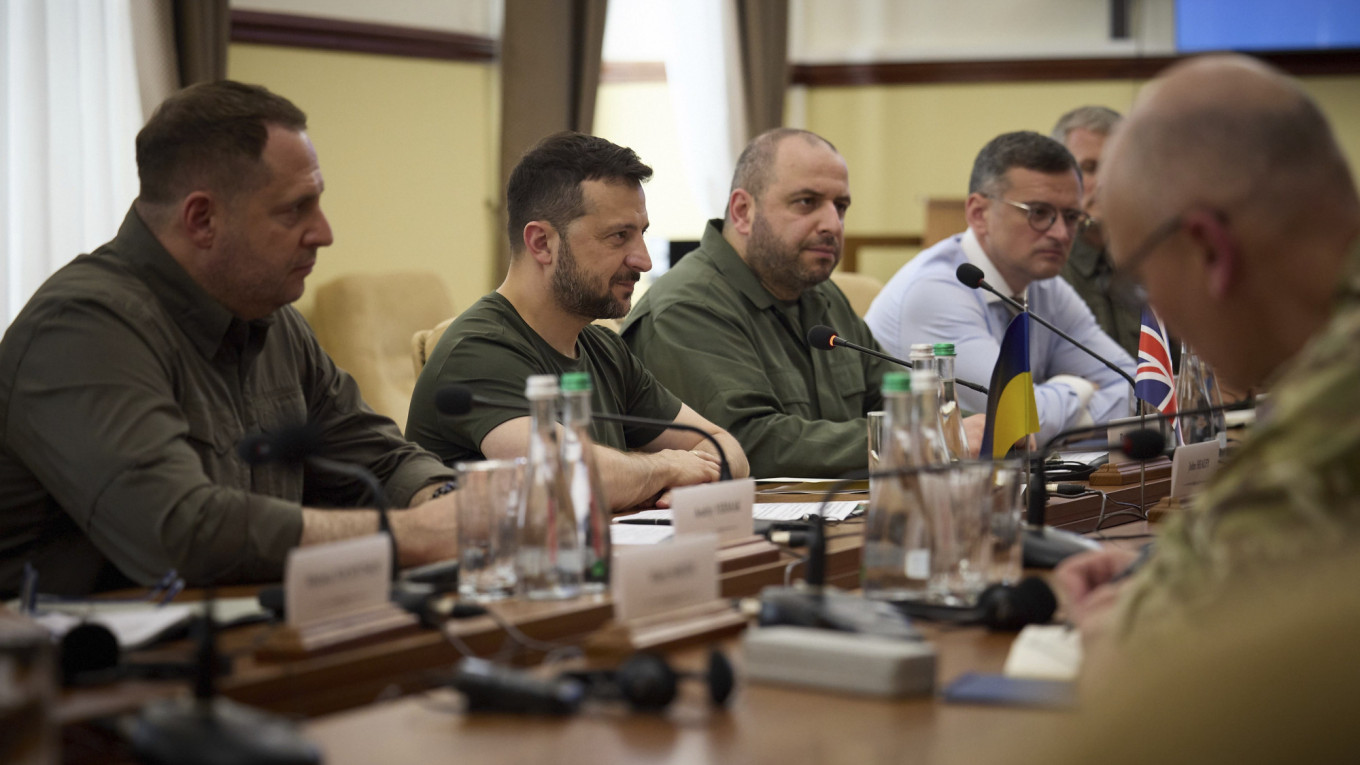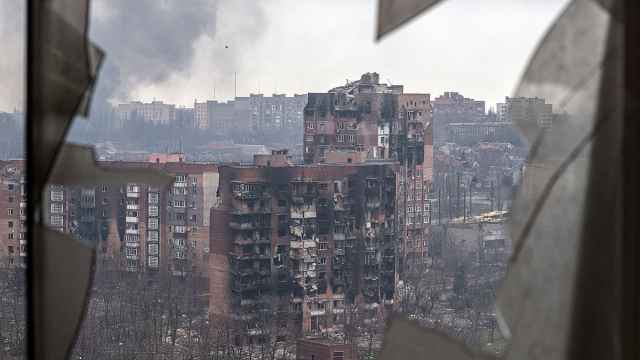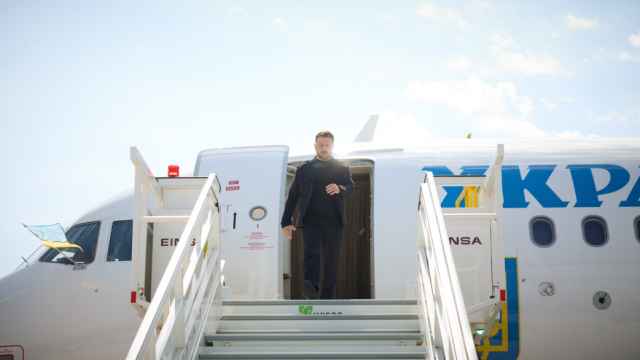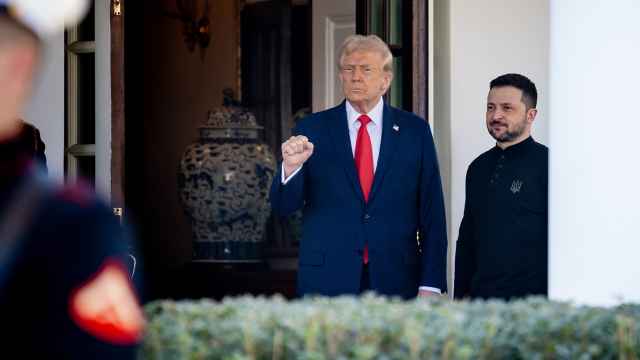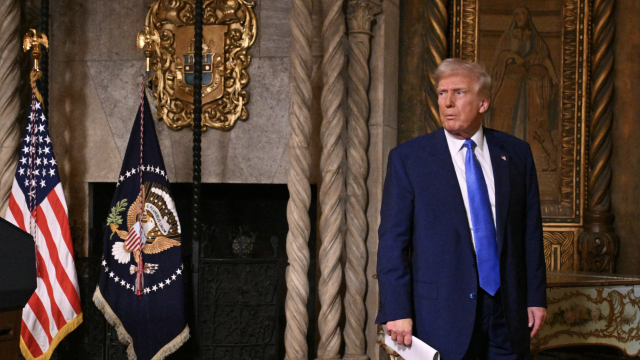Ukraine and the U.S. will soon meet in Switzerland to discuss Washington's plan for ending the war with Russia, Kyiv said Saturday, as it seeks to fix the draft that heeds to some of Moscow's hardline demands.
U.S. President Donald Trump gave Ukraine less than a week to approve the 28-point plan to end the nearly four-year conflict, which would see the invaded country ceding territory, cutting its army, and pledging to never join NATO.
Meanwhile, Ukraine's European allies, who were not included in drafting the agreement, said the plan requires “additional work” as they scrambled at the G20 summit in South Africa to come up with a counter-offer to Trump's plan to beef up Kyiv's positions.
“In the coming days, consultations will take place with partners regarding the steps needed to end the war,” President Volodymyr Zelensky said, after he issued a decree stating Ukraine's team for the talks, which will be led by his top aide, Andriy Yermak.
“Our representatives know how to defend Ukraine's national interests and what is necessary to prevent Russia from launching a third invasion,” Zelensky added.
The wartime leader was also holding rounds of phone calls with European counterparts, as he earlier promised to work around the clock to ensure the final peace agreement will protect Ukraine's future.
Rustem Umerov, Ukraine's security council secretary who is also on board for the talks, earlier indicated Switzerland as a location for the deliberations.
“This is another stage of the dialogue that has been ongoing in recent days and is primarily aimed at aligning our vision for the next steps,” added Umerov, formerly a defense minister. He previously led a few rounds of negotiations with Russia in Turkey, which only yielded prisoner exchanges and bodies repatriations.
Zelensky's decree also said the negotiations will include “representatives of the Russian Federation.” There was no immediate confirmation from Russia whether it would join the talks.
More work needed
The unilateral U.S. plan to end the war in Ukraine “is a basis which will require additional work,” Western leaders gathered in South Africa for a G20 summit said Saturday.
“We are clear on the principle that borders must not be changed by force. We are also concerned by the proposed limitations on Ukraine's armed forces, which would leave Ukraine vulnerable to future attack,” the leaders of key European countries as well as Canada and Japan said in a joint statement.
France's Emmanuel Macron earlier sent a somber message to the gathering, saying “the G20 may be coming to the end of a cycle,” adding that the grouping was struggling to resolve major crises around the world, referring to the unilateral U.S. plan for resolving the Ukraine war.
Britain, Germany and France emerged as key Ukraine backers, providing it with crucial military and financial support, especially after the U.S. sponsorship waned after Trump's return to office.
Difficult choice
Ukraine faces one of the most challenging moments in its history, Zelensky said Friday in an address to the nation, adding that he would propose alternatives to Trump's proposal.
“The pressure on Ukraine is one of the hardest. Ukraine may face a very difficult choice: either the loss of dignity or the risk of losing a key partner,” Zelensky said in his address, referring to a possible break with Washington.
Russian President Vladimir Putin said the blueprint could “lay the foundation” for a final peace settlement, but threatened more land seizures if Ukraine walked away from negotiations.
Better equipped and larger in numbers, the Russian army is slowly but steadily gaining ground across the lengthy front line.
Ukrainians were meanwhile facing one of the toughest winters since the war began, after Moscow carried out a brutal bombing campaign against energy infrastructure.
This comes as a sweeping corruption probe that unveiled graft in the energy sector was unravelling in Kyiv, sparking public outcry.
A Message from The Moscow Times:
Dear readers,
We are facing unprecedented challenges. Russia's Prosecutor General's Office has designated The Moscow Times as an "undesirable" organization, criminalizing our work and putting our staff at risk of prosecution. This follows our earlier unjust labeling as a "foreign agent."
These actions are direct attempts to silence independent journalism in Russia. The authorities claim our work "discredits the decisions of the Russian leadership." We see things differently: we strive to provide accurate, unbiased reporting on Russia.
We, the journalists of The Moscow Times, refuse to be silenced. But to continue our work, we need your help.
Your support, no matter how small, makes a world of difference. If you can, please support us monthly starting from just $2. It's quick to set up, and every contribution makes a significant impact.
By supporting The Moscow Times, you're defending open, independent journalism in the face of repression. Thank you for standing with us.
Remind me later.


